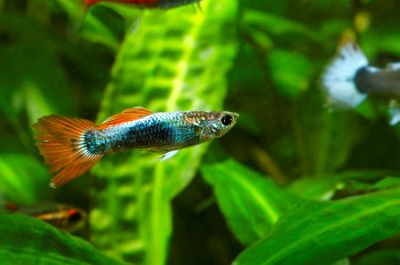|
|
|
|
|
SELANGOR, Malaysia, Nov 10, 2015 - (ACN Newswire) - Molecular ecologists have a key role to play in setting priorities for the conservation of aquatic biodiversity, according to a recent review paper published in the Pertanika Journal of Tropical Agricultural Sciences.
 | | A molecular approach to conserving freshwater biodiversity |
By applying DNA sequencing and related tools, molecular ecologists can collaborate with other ecologists, especially in the fields of species distribution modelling and conservation planning, argues the paper's author, Jane Hughes, of the Australian Rivers Institute. "This approach will help to prioritise conservation actions for the best possible outcomes."
As the world's population grows, human water needs are growing accordingly, reducing the amount of water available for sustaining freshwater biodiversity. This situation will likely worsen in areas where rainfall decreases as a result of global climate change.
Growing human demand for water will affect biodiversity primarily by increasing the number of dams, which already number over one million globally, as well as the extraction of water for agriculture and aquaculture. "Already, declines in freshwater biodiversity are far greater than in terrestrial systems [i.e. ecosystems present on land]," notes Dr Hughes.
For competing needs to be managed, we need accurate and efficient ways to assess our biodiversity, she stresses. "Currently, species are going extinct more quickly than we can recognise them."
We also need accurate and efficient ways to assess the current and historical connectivity among populations, as well as the need for freshwater species to maintain connectivity with other habitats such as the floodplain or the estuary, adds Dr Hughes. "Finally, we need to develop methods for prioritising which rivers, streams or reaches should best be preserved or protected in order to maximise protection of biodiversity."
Molecular ecologists can contribute to these challenges in many ways, says Dr Hughes. In her paper, she discusses recent advances in the assessment of biodiversity, methods for assessing connectivity among aquatic populations, how to combine molecular approaches with other methods to understand migration patterns, and future options that could improve our ability to conserve freshwater biodiversity.
"A multidisciplinary approach that incorporates new technological approaches in acquisition of molecular data is the best way forward for our aquatic biodiversity," she concludes.
For more information, please contact:
Professor Jane M. Hughes
Australian Rivers Institute
Griffith University,
Queensland, Australia
Email: Jane.Hughes@griffith.edu.au
Tel: +61-7-3735-7376
About Pertanika Journal of Tropical Agricultural Science (JTAS)
Pertanika Journal of Tropical Agricultural Science (JTAS) is published by Universiti Putra Malaysia in English and is open to authors around the world regardless of nationality. The journal is published four times a year in February, May, August and November. Other Pertanika series include Pertanika Journal of Science & Technology (JST), and Pertanika Journal of Social Sciences & Humanities (JSSH).
JTAS aims to provide a forum for high quality research related to tropical agricultural research. Areas relevant to the scope of the journal include: agricultural biotechnology, biochemistry, biology, ecology, fisheries, forestry, food sciences, entomology, genetics, microbiology, pathology and management, physiology, plant and animal sciences, production of plants and animals of economic importance, and veterinary medicine. The journal publishes original academic articles dealing with research on issues of worldwide relevance. www.pertanika.upm.edu.my. The papers are available on http://bit.ly/1Y1XshZ.
For more information about the journal, contact:
The Chief Executive Editor (UPM Journals)
Journal Division, UPM Press, Malaysia
Phone: +60-3-8947-1622 | +60-16-217-4050
Email: nayan@upm.my
Date of Release: 6 November 2015.
Acknowledgement: The Chief Executive Editor, UPM Journals
Topic: Research / Industry Report
Source: Pertanika Journal
Sectors: Science & Research, Environment, ESG, Environment, ESG
https://www.acnnewswire.com
From the Asia Corporate News Network
Copyright © 2026 ACN Newswire. All rights reserved. A division of Asia Corporate News Network.
|
|
|
|

|
|
|
|